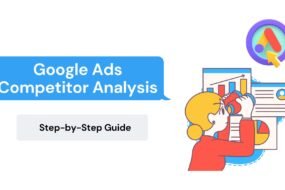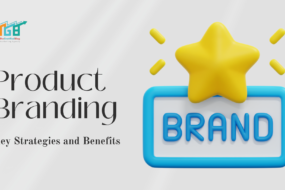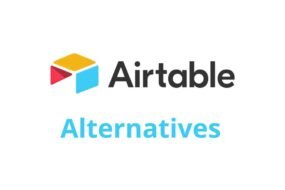
Staying ahead in the competitive world of marketing requires more than just creativity and intuition—it demands actionable insights driven by data. In 2025, the landscape of marketing intelligence tools has evolved to meet the growing need for precision, efficiency, and real-time analytics. These tools empower marketers to decode consumer behavior, refine strategies, and achieve measurable results like never before.
Whether you’re tracking campaign performance, analyzing customer journeys, or monitoring market trends, having the right marketing intelligence tools can be a game-changer. In this blog, we’ll explore the top tools that are setting new standards for data-driven marketing in 2025. Ready to level up your marketing game? Let’s dive in!
What Is Marketing Intelligence?
Before diving into the tools, let’s quickly recap what marketing intelligence actually is. Marketing intelligence involves collecting and analyzing data to gain insights into market trends, consumer behavior, competitors, and overall performance. This helps businesses understand what’s working and what’s not, ultimately allowing them to make smarter marketing decisions.
Unlike simple data collection, marketing intelligence goes deeper by analyzing trends, predicting behaviors, and helping you understand why certain things happen in your market. It’s about gaining an in-depth understanding of your customers and your competition.
What Are The Benefits Of Marketing Intelligence Tools?
Marketing intelligence tools are more than just fancy dashboards and graphs; they bring real, tangible benefits to your marketing strategies:
- Data-Driven Decisions: No more guesswork. Marketing intelligence tools provide you with data to make informed decisions.
- Understanding Your Audience: These tools help you uncover valuable details about your target audience’s preferences, habits, and needs.
- Tracking Competitors: With marketing intelligence, you can keep an eye on your competitors’ strategies, their successes, and areas where they fall short.
- Enhanced ROI: By understanding which campaigns are performing best, you can allocate your budget wisely and maximize return on investment.
- Improved Customer Experience: Gain insights that help you craft more personalized and engaging customer experiences.
Now, let’s get to the top marketing intelligence tools you should consider using in 2025.
Top Marketing Intelligence Tools In 2025
1. HubSpot
Why it is great:
HubSpot is more than just a tool; it’s like having an entire marketing department in one platform. Its features cater to marketing, sales, and customer service, making it an all-in-one solution for businesses. Some standout features include:
- Lead Tracking and Management: Monitor your leads as they move through the sales funnel.
- Campaign Analytics: Measure the success of your marketing campaigns with in-depth analytics.
- Customer Behavior Insights: Understand how your audience interacts with your brand to optimize strategies.
- Social Media Tracking: Track and manage your social media performance.
HubSpot also integrates seamlessly with other tools, ensuring a smooth workflow. Its user-friendly interface and powerful automation features save time and effort.
Who should use it:
Businesses of all sizes looking for a centralized platform to manage marketing, sales, and customer service will find HubSpot invaluable. It’s especially great for startups and growing companies that need robust tools without a steep learning curve.
2. Semrush
Why it is great:
Semrush is a powerhouse for digital marketers, offering tools to improve SEO, analyze competitors, and track campaign performance. It’s particularly useful for staying ahead in a competitive online market. Key features include:
- Keyword Research: Identify high-ranking keywords to optimize your content.
- Competitor Analysis: Understand what your competitors are doing to outrank them.
- Backlink Opportunities: Discover sites that can improve your domain authority.
- SEO Tracking: Monitor your site’s rankings and overall performance.
Semrush’s interface is intuitive, making it accessible to both beginners and experts. It also provides content optimization suggestions, ensuring your pages rank higher.
Who should use it:
Ideal for marketers focused on SEO, content marketing, and digital advertising. Whether you’re an agency or a solo entrepreneur, Semrush helps you stay competitive.
3. Sprout Social
Why it is great:
Sprout Social makes managing social media simple and effective. It provides comprehensive analytics and management features that help you craft winning strategies. Key benefits include:
- Performance Tracking: Analyze engagement metrics and audience growth across platforms.
- Audience Engagement: Respond to messages and comments from a single dashboard.
- Content Analysis: Discover what type of posts resonate most with your audience.
- Post Scheduling: Plan and automate posts to save time.
Sprout Social also offers team collaboration features, making it easier for teams to manage campaigns together.
Who should use it:
Perfect for brands heavily reliant on social media to connect with their customers. From small businesses to large enterprises, Sprout Social is essential for maintaining an active online presence.
4. Tableau
Why it is great:
Tableau transforms complex data into beautiful, easy-to-understand visuals. It’s perfect for businesses dealing with large datasets and needing actionable insights. Standout features include:
- Interactive Dashboards: Create custom dashboards that showcase your key metrics.
- Predictive Analytics: Forecast trends and make data-driven decisions.
- Real-Time Reporting: Get instant updates on your performance metrics.
With its drag-and-drop interface, Tableau is user-friendly despite its advanced capabilities. It supports integrations with various data sources, ensuring a seamless workflow.
Who should use it:
Businesses that rely on data to make decisions will find Tableau invaluable. From marketers to data analysts, anyone needing clear visual insights should use Tableau.
5. Google Analytics 4 (GA4)
Why it is great:
Google Analytics 4 takes digital analytics to the next level, offering advanced tracking and insights. Whether you’re a seasoned marketer or a beginner, GA4 provides actionable data. Key features include:
- Cross-Platform Tracking: Analyze user journeys across websites and apps.
- Enhanced Event Tracking: Monitor specific user interactions like clicks and downloads.
- User Journey Insights: Understand how visitors move through your site or app.
GA4 also emphasizes privacy, making it a future-proof choice for businesses adapting to new data regulations.
Who should use it:
Any business or individual managing a website or app can benefit from GA4. It’s especially useful for those looking to dive deep into user behavior.
6. Brandwatch
Why it is great:
Brandwatch helps you stay on top of your online reputation. It provides powerful social listening tools that track conversations about your brand. Key features include:
- Social Listening: Monitor what people say about your brand online.
- Sentiment Analysis: Understand the tone behind customer feedback.
- Trend Tracking: Spot emerging trends in your industry.
- Competitor Monitoring: Keep tabs on your competitors’ online presence.
Brandwatch helps businesses stay proactive about their image, making it an essential tool for brand managers.
Who should use it:
Perfect for brands that care about their online reputation and want to stay ahead of trends. Social media managers and PR teams will particularly benefit.
7. Klaviyo
Why it is great:
Klaviyo specializes in email and SMS marketing, making it perfect for e-commerce businesses. Its features focus on personalization and building customer relationships. Key benefits include:
- Email Campaigns: Create targeted campaigns based on customer behavior.
- SMS Marketing: Reach customers directly with personalized messages.
- Data-Driven Recommendations: Offer tailored product suggestions.
Klaviyo integrates seamlessly with e-commerce platforms like Shopify, ensuring a streamlined experience.
Who should use it:
E-commerce stores looking to strengthen customer relationships and boost sales. It’s particularly useful for businesses aiming to create personalized marketing campaigns.
8. SimilarWeb
Why it is great:
SimilarWeb provides deep insights into your competitors’ strategies, helping you gain a competitive edge. Key features include:
- Traffic Analysis: Understand where competitors get their traffic.
- Audience Insights: Learn more about your target demographics.
- Market Trends: Spot emerging trends in your industry.
The platform is intuitive and provides actionable insights, making it easier to refine your strategies.
Who should use it:
Businesses want to outsmart their competitors and stay ahead in their market. It’s ideal for digital marketers and strategists.
9. Hotjar
Why it is great:
Hotjar provides a closer look at how users interact with your website, giving you invaluable insights into improving user experience. Its intuitive interface and robust features make it a favorite among marketers and designers. Key features include:
- Heatmaps: Visualize where users click, scroll, and spend time on your site.
- Session Recordings: Replay user sessions to see exactly how they navigate your site.
- Surveys: Collect feedback directly from your visitors to understand their pain points.
Hotjar helps identify issues that may not be obvious in traditional analytics tools. Whether it’s understanding why users drop off or optimizing your design, Hotjar delivers actionable insights.
Who should use it:
Perfect for website designers, developers, and marketers aiming to improve conversion rates and user satisfaction.
10. Zoho Analytics
Why it is great:
Zoho Analytics is an affordable yet powerful tool for visualizing and analyzing data from multiple sources. It’s ideal for businesses looking for comprehensive insights without breaking the bank. Key features include:
- Data Visualization: Create stunning charts and graphs to represent complex data.
- Custom Reports: Build detailed, tailored reports to track KPIs.
- AI-Powered Insights: Get predictions and automated insights using AI tools.
Zoho Analytics integrates with a wide range of apps, ensuring all your data is in one place. Its user-friendly dashboard simplifies data analysis for even non-technical users.
Who should use it:
Businesses of all sizes, especially those looking for a cost-effective analytics solution. It’s great for teams that need to simplify data interpretation.
11. Adverity
Why it is great:
Adverity is a must-have for marketers juggling multiple campaigns across platforms. It consolidates data, making it easier to track performance and identify trends. Key benefits include:
- Automated Data Collection: Save time by centralizing all your marketing data.
- Custom Dashboards: Visualize your campaigns with easy-to-read dashboards.
- Predictive Analytics: Forecast future trends to make informed decisions.
Adverity ensures you’re not overwhelmed by data, offering insights that truly matter. Its automation capabilities are a game-changer for busy marketing teams.
Who should use it:
Marketers managing multi-channel campaigns who want to streamline reporting and optimize strategies.
12. Clearbit
Why it is great:
Clearbit is a powerful tool for understanding your leads better, helping you create personalized marketing campaigns. It enriches your data, ensuring you have all the necessary information about your prospects. Key features include:
- Detailed Customer Profiles: Gain deeper insights into your audience.
- Data Enrichment: Automatically fill in missing details about your leads.
- Lead Scoring: Prioritize high-value prospects to improve efficiency.
Clearbit’s seamless integration with CRMs makes it a favorite among sales and marketing teams looking to boost their outreach.
Who should use it:
Sales and marketing teams aiming for personalized and data-driven outreach. It’s particularly useful for B2B companies.
13. BuzzSumo
Why it is great:
BuzzSumo helps marketers and content creators identify trending topics and craft high-performing content. It simplifies the process of understanding what resonates with your audience. Key benefits include:
- Content Insights: Discover the most shared content in your industry.
- Influencer Identification: Find influencers who can amplify your message.
- Trend Analysis: Stay ahead by spotting emerging trends.
BuzzSumo’s ability to track social shares and engagement makes it an invaluable tool for content marketing teams.
Who should use it:
Content marketers and social media teams looking to create shareable, impactful content.
14. Databox
Why it is great:
Databox brings all your KPIs into one intuitive dashboard, simplifying performance tracking across multiple tools. Its customizable dashboards allow you to focus on what matters most. Key features include:
- Custom Dashboards: Tailor dashboards to track the metrics most relevant to your goals.
- Real-Time Updates: Monitor performance as it happens.
- Tool Integration: Connect with tools like HubSpot, Google Analytics, and more.
Databox ensures you don’t need to juggle multiple platforms to keep track of your performance.
Who should use it:
Marketers who want a clear, concise way to monitor their KPIs and ensure they’re hitting their goals.
15. Emplifi
Why it is great:
Emplifi is designed to help businesses maximize their social media performance. It offers insights and tools to ensure you’re staying ahead in the digital space. Key features include:
- Benchmarking: Compare your performance against competitors to find improvement areas.
- Optimal Posting Times: Identify the best times to post for maximum engagement.
- Influencer Identification: Spot key influencers who align with your brand.
Emplifi’s AI-driven insights make it easier to fine-tune your social media strategy.
Who should use it:
Brands and agencies looking to enhance their social media marketing efforts and stay competitive.
What Are The Emerging Trends In Marketing Intelligence Tools?
- AI-Powered Insights: Tools are increasingly leveraging artificial intelligence for predictive analytics and automated decision-making.
- Real-Time Data Processing: Marketers now access real-time insights to quickly adapt strategies and improve responsiveness.
- Cross-Channel Integration: Seamless integration across social media, email, and other platforms enhances a unified view of customer behavior.
- Behavioral Analytics: Advanced tracking of customer interactions helps in understanding purchase intent and preferences.
- Personalization: Marketing intelligence tools use data to create highly personalized customer experiences, boosting engagement.
- Focus on Data Privacy: As regulations tighten, tools are adopting stronger compliance measures to secure user data.
- Visual Dashboards: Simplified, customizable dashboards make data interpretation easier for marketers.
How To Pick The Right Marketing Intelligence Tools For You?
Choosing the right marketing intelligence tools can enhance your business strategy. Here’s a quick guide:
- Identify Your Needs: Define your goals (e.g., competitor analysis, customer insights, campaign performance).
- Budget: Determine how much you can invest in a tool without overspending.
- Key Features: Look for features like data visualization, real-time analytics, and integrations with your existing tools.
- Ease of Use: Ensure the tool is user-friendly and requires minimal training.
- Scalability: Pick a tool that grows with your business needs.
- Customer Support: Choose tools with reliable support for quick issue resolution.
- Reviews and Case Studies: Research reviews and success stories from businesses similar to yours.
- Trial Period: Opt for tools offering free trials to test their functionality.
Final Thoughts
Marketing intelligence tools are essential for staying competitive in 2025. They save time, provide valuable insights, and help you create campaigns that drive results. Whether you are running a small business or managing a large team, there is a tool on this list for you.
So, take your pick, and start making smarter marketing decisions today. The future is bright, and with the right tools, success is just around the corner.








No Comments